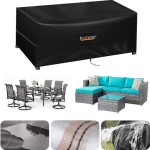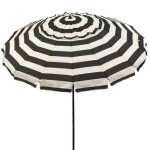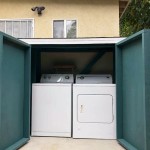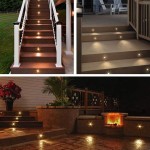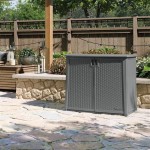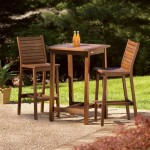Best Outdoor Heaters for a Covered Porch: A Comprehensive Guide
Extending the usability of a covered porch beyond the warmer months often necessitates the incorporation of supplemental heating. Selection of the optimal outdoor heater involves careful consideration of several factors, including heating capacity, fuel source, safety features, and spatial constraints. This article will explore the various types of outdoor heaters suitable for covered porches, outlining their advantages, disadvantages, and key considerations for making an informed purchasing decision.
Types of Outdoor Heaters Suitable for Covered Porches
Numerous outdoor heating solutions cater to the specific requirements of a covered porch environment. These include electric heaters, propane heaters, and natural gas heaters, each possessing distinct characteristics that influence their suitability for different applications.
Electric Heaters: Electric heaters are a popular choice for covered porches due to their ease of use, relatively low operating costs (depending on electricity rates), and minimal emissions. They typically utilize infrared radiant heat, which directly warms objects and individuals within their range, rather than heating the surrounding air. This makes them efficient in open or semi-open spaces.
Electric heaters for covered porches are available in several forms: portable electric space heaters, wall-mounted electric heaters, and infrared radiant heaters mounted on ceilings or walls. Portable electric heaters offer the advantage of mobility, allowing users to direct heat where needed. Wall-mounted and ceiling-mounted options provide a more permanent and space-saving solution, ideal for smaller porches where floor space is limited. It is crucial to ensure that any electrical heater is rated for outdoor use and protected from the elements, even under a covered porch. Look for heaters with IP ratings indicating their resistance to water and dust ingress.
Propane Heaters: Propane heaters are a common option for outdoor heating, offering significant heat output and portability. They function by burning propane gas to generate heat, typically using a burner system to produce infrared radiation. Propane heaters provide substantial warming power, making them suitable for larger covered porches or areas with significant drafts. However, they require a propane tank for fuel, which needs to be stored and refilled periodically. Propane heaters are readily available in various configurations, including freestanding patio heaters, tabletop models, and wall-mounted units.
Safety is paramount when using propane heaters. Proper ventilation is essential to prevent the buildup of carbon monoxide, a colorless, odorless, and potentially deadly gas. While covered porches offer some ventilation, it is vital to ensure adequate airflow to avoid any risks. Propane heaters should be equipped with safety features such as tip-over protection, which automatically shuts off the heater if it is accidentally knocked over. Furthermore, regular inspection of propane tanks and connections is crucial to identify and address any leaks. A propane leak detector is a recommended safety measure.
Natural Gas Heaters: Natural gas heaters provide a permanent and often cost-effective heating solution for covered porches, assuming a natural gas line is accessible. They offer a consistent and reliable fuel supply, eliminating the need for propane tank refills. Like propane heaters, natural gas heaters generate heat through combustion, typically emitting infrared radiation. Natural gas heaters require professional installation by a qualified gas fitter to ensure proper connection to the gas line and compliance with local building codes. This installation process can involve permits and inspections.
Natural gas heaters, similar to propane heaters, require adequate ventilation to prevent the accumulation of carbon monoxide. Safety mechanisms like flame failure devices, which automatically shut off the gas supply if the flame is extinguished, are essential. Natural gas heaters are available in various styles, including wall-mounted units, ceiling-mounted models, and post-mounted heaters. The choice depends on the size and configuration of the covered porch and the desired heating coverage area.
Factors Influencing Heater Selection
Choosing the most suitable outdoor heater for a covered porch necessitates a thorough evaluation of several key factors, including the size of the porch, the desired heating area, the availability of fuel sources, budget considerations, and safety requirements.
Heating Area and Output (BTU/Watts): The size of the covered porch directly influences the required heating output. Larger porches necessitate heaters with higher British Thermal Unit (BTU) ratings for propane and natural gas heaters or higher wattage for electric heaters to effectively warm the space. BTU is a measure of the amount of heat required to raise the temperature of one pound of water by one degree Fahrenheit. As a general guideline, consider that for every 100 square feet of space, approximately 5,000 BTU may be required. For electric heaters, consider that 1,500 watts is roughly equivalent to 5,000 BTU. However, this is a general approximation and may vary depending on factors such as insulation, wind exposure, and ambient temperature.
It is beneficial to calculate the square footage of the area you intend to heat. Then, compare this figure with the heater's specifications to ensure adequate coverage. In some cases, more than one heater may be necessary to evenly distribute heat throughout a larger porch area. Consider the heater's heating radius or coverage area as indicated in its specifications.
Fuel Source Availability and Cost: The availability and cost of fuel sources play a significant role in heater selection. If a natural gas line is readily accessible, natural gas heaters offer a convenient and potentially cost-effective solution. However, the initial installation cost can be higher due to the need for professional gas line connection. Propane heaters provide flexibility and portability but require propane tank refills, which incur ongoing costs. Electric heaters are relatively simple to install but can result in higher electricity bills, depending on local electricity rates and usage patterns.
Compare the long-term operating costs of each fuel source based on your usage habits and local utility rates. Also, consider the convenience of each fuel source. Propane requires periodic refilling, while natural gas offers a continuous supply. Electric heaters require only a readily available electrical outlet.
Safety Features and Regulations: Safety is paramount when operating any type of outdoor heater. Seek heaters with safety certifications from reputable organizations such as UL (Underwriters Laboratories) or CSA (Canadian Standards Association). These certifications indicate that the heater has undergone rigorous testing to meet safety standards. Essential safety features include tip-over protection, flame failure devices, and overheat protection. Tip-over protection automatically shuts off the heater if it is accidentally knocked over, preventing potential fires or injuries. Flame failure devices shut off the gas supply if the flame is extinguished, preventing the release of unburned gas. Overheat protection prevents electric heaters from overheating and potentially causing fire hazards.
Also, check local building codes and regulations regarding the use of outdoor heaters on covered porches. Some municipalities may have restrictions on the type of heaters allowed, the required clearances from combustible materials, or the need for permits.
Installation and Maintenance Considerations
Proper installation and regular maintenance are crucial for ensuring the safe and efficient operation of outdoor heaters. Adhering to manufacturer's instructions is paramount, and seeking professional assistance for gas line connections or electrical wiring is highly recommended.
Installation Procedures: Electric heaters typically require minimal installation, often involving simply plugging the heater into an appropriate electrical outlet or mounting it on a wall or ceiling. Follow the manufacturer's instructions carefully regarding mounting heights, clearances from combustible materials, and electrical safety guidelines. Ensure that the electrical outlet is properly grounded and rated for the heater's power consumption.
Propane and natural gas heaters require more complex installation procedures. Propane heaters necessitate connecting the heater to a propane tank using a regulator and hose. Ensure that the connections are secure and leak-free. Natural gas heaters require professional installation by a qualified gas fitter who can connect the heater to the gas line and ensure proper venting and safety mechanisms are in place. Adherence to local building codes and regulations is crucial during the installation process.
Maintenance Requirements: Regular maintenance is essential for maintaining the safe and efficient operation of outdoor heaters. For all types of heaters, periodically inspect the heater for any signs of damage, such as cracks, corrosion, or loose connections. Clean the heater regularly to remove dust, dirt, and debris that can accumulate and affect its performance. For propane and natural gas heaters, inspect the gas lines and connections for any leaks using a soapy water solution. If any leaks are detected, immediately shut off the gas supply and contact a qualified technician for repair. For electric heaters, check the electrical cords and plugs for any damage. If any damage is found, replace the cord or plug immediately.
Follow the manufacturer's recommendations for specific maintenance procedures, such as cleaning the burner system or replacing filters. Proper storage during the off-season is also important for preserving the heater's lifespan. Store the heater in a dry, protected location to prevent damage from the elements.

The 2 Best Outdoor Patio Heaters Of 2024 Reviews By Wirecutter

10 Best Patio Heaters And Outdoor In 2024 Hgtv

7 Best Outdoor Patio Heaters Of 2024

10 Best Patio Heaters And Outdoor In 2024 Hgtv

10 Best Patio Heaters And Outdoor In 2024 Hgtv

12 Best Outdoor Heaters The Strategist

Best Patio Heaters Of 2024 Cnet

12 Best Outdoor Heaters The Strategist

Best Patio Heaters Of 2024 Cnet

Winter Guide To Outdoor Patio Heating


